-
Par MissGuillotine le 24 Juillet 2014 à 22:04
1404 –Birth of Philip I, Duke of Brabant
1421 –Birth of Henry Percy, 3rd Earl of Northumberland

1472 – Death of Charles of Artois, Count of Eu
1492 –Death of Pope Innocent VIII

1535-Chapuys to Charles V.
Since the return of the duke of Norfolk and the others from Calais I have several times written to your Majesty, and, among other things, that immediately after the said return Cromwell came to notify to me that nothing had been concluded on the part of his master, of which he wished me to inform you at once; and that I agreed to despatch a messenger, provided there was other matter to convey, such as that the King would accept the overtures made by your Majesty, or make better ones. I have also written how, besides other three Carthusians who have been executed with the same cruelty as the former ones, they had beheaded the cardinal of Rochester and Master Morus, to the great grief of the whole people. I have also written how the affairs of Kildare prospered, and that the English were sending two persons to Lubeck and Denmark. At the request of the Princess I lately sent a message to Cromwell to know if she could be placed with the Queen; but he told me that the King his master would never consent to it, and there was no occasion for it, except that the said Queen was too papistical. He said the true means to get the Princess removed from where she was, and cured of her illness, would be to find a suitable match for her, provided it was not the Dauphin, to whom they had no intention of giving her, however much your Majesty might desire it; and that they were importuned by several petty princes of Germany, but this would degrade her too much. I think the King is not over anxious to marry, her; and, if we may trust the concubine, the dower will not cost much, because she is incessantly crying after the King that he does not act with prudence in suffering the Queen and Princess to live, who deserved death more than those who have been executed, and that they were the cause of all. Since Shrovetide I have sent a servant once or twice every week to the said Princess, but lately her gouvernante told my man that she was charged not to let him come in again. On this I have asked Cromwell to know the will of the King his master.
Cromwell tried to dissemble towards me the despatches of the two persons above mentioned, but at last, not to lose his influence with me in other things, he confessed it. They have not yet left, but are only waiting weather to sail. I have not been able to discover anything about their charge, but I fear they go in order to trouble matters in case the Count Palatine aspires to the kingdom of Denmark. From one thing to another he came to say that they see clearly that your Majesty is aiming at universal monarchy, and that you had already cast down kings on all sides (que desia vre. Mate. en avoit jecte les roys de tous coustez); and that, having the seacoast of the Levant and neighbouring countries, you only required to put the Count Palatine in possession of Denmark, and all the neigbouring countries would be compelled by fear or force to obey you, but he did not see what title the Count could claim to Denmark.
Cromwell told me that he would have paid 1,000l. sterling that your Majesty had heard a sermon made by the bishop of London a few days ago on the validity of the first marriage and the usurpation of the Pope, and that he would send it to me in writing, begging me to forward it to your Majesty. Hereupon he remarked that the King would never consent to a General Council convoked by papal or any other authority than that of your Majesty, who was the lawful head of princes and of all Christendom, to whom the right of convoking it belonged by ancient custom. Your Majesty will consider what is the meaning of this. Whatever looks or words they give there is little hope of bringing them to the right way. Their obstinacy seems to increase every day; yet they rely little on the favor of the French, of whom they are continually speaking ill, and with whom they associate very little. Cromwell, even when the bishop of Tarbes came to his gate three days ago, caused him to be told that he was gone out, when he was really playing at bowls, as the said ambassador told me, who thereupon came to visit me. I hear from France that they play them a like game in return (ilz leur en jouent bien a la pareille), for they have confiscated two English ships at Rouen by virtue of a mandate which was posted up a year ago in France. If this be so, and the French insist on keeping these ships, matters will be much embroiled between them and the English. I hear on good authority that the King intends to send Dr. Fox, his almoner, at the same time as the others into Denmark, and he will pass further into Germany. London, 25 July 1535.
1539 – Death of Cardinal Lorenzo Campeggio

1547 – Henry II of France is crowned.

1554 – Mary I marries Philip II of Spain at Winchester Cathedral.
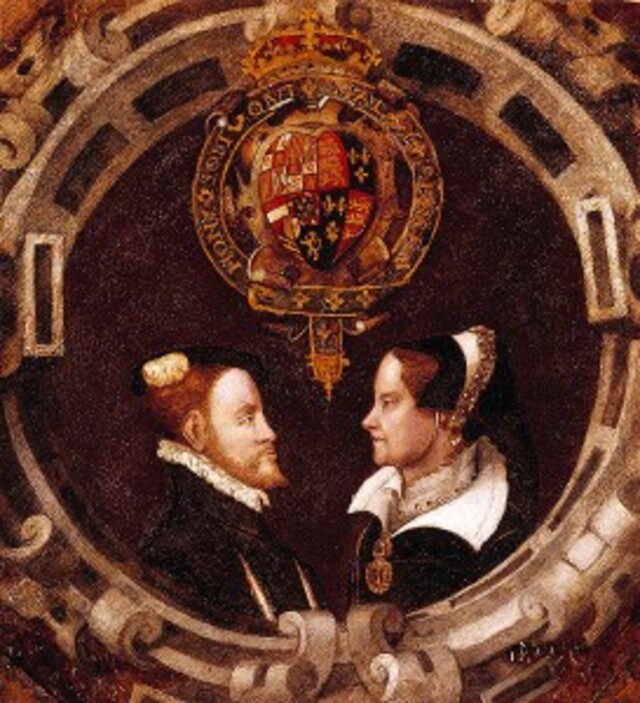
1593 – Henry IV of France publicly converts from Protestantism to Roman Catholicism.

1603 – James VI of Scotland is crowned king of England


source:http://www.british-history.ac.uk/,wikipedia
-
Par MissGuillotine le 23 Juillet 2014 à 21:44
23 July 1411 – Battle of Harlaw, one of the bloodiest battles in Scotland, takes place.
1529 – Birth of Charles II, Margrave of Baden-Durlach
1534 – French explorer Jacques Cartier plants a cross on the Gaspé Peninsula and takes possession of the territory in the name of Francis I of France.
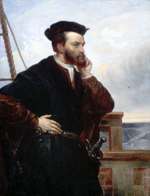
1561 –Birth of Maria of the Palatinate-Simmern
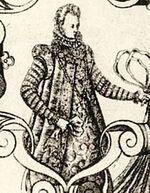
1567 – Mary, Queen of Scots, is forced to abdicate and replaced by her 1-year-old son James VI.

Between 21 and 23 April 1567, Mary visited her son at Stirling for the last time. On her way back to Edinburgh on 24 April, Mary was abducted, willingly or not, by Lord Bothwell and his men and taken to Dunbar Castle, where he may have raped her.On 6 May, Mary and Bothwell returned to Edinburgh and on 15 May, at either Holyrood Palace or Holyrood Abbey, they were married according to Protestant rites.Bothwell and his first wife, Jean Gordon, who was the sister of Lord Huntly, had divorced twelve days previously
Originally Mary believed that many nobles supported her marriage, but things soon turned sour between the newly elevated Bothwell (created Duke of Orkney and consort of the Queen) and his former peers, and the marriage proved to be deeply unpopular. Catholics considered the marriage unlawful, since they did not recognise Bothwell's divorce or the validity of the Protestant service. Both Protestants and Catholics were shocked that Mary should marry the man accused of murdering her husband.The marriage was tempestuous, and Mary became despondent. Twenty-six Scottish peers, known as the confederate lords, turned against Mary and Bothwell, raising an army against them. Mary and Bothwell confronted the lords at Carberry Hill on 15 June, but there was no battle as Mary's forces dwindled away through desertion during negotiations.Bothwell was given safe passage from the field, and the lords took Mary to Edinburgh, where crowds of spectators denounced her as an adulteress and murderer.The following night, she was imprisoned in Loch Leven Castle, on an island in the middle of Loch Leven.Between 20 and 23 July, Mary miscarried twins.On 24 July, she was forced to abdicate in favour of her one-year-old son James. Moray was made regent,while Bothwell was driven into exile. He was imprisoned in Denmark, became insane and died in 1578.

1568 –Death of Carlos, Prince of Asturias

source:wikipedia
-
Par MissGuillotine le 22 Juillet 2014 à 21:44
23 July 1301 – Birth of Otto, Duke of Austria

1339 – Birth of Louis I, Duke of Anjou
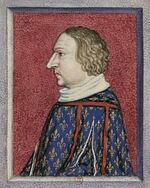

1403 –Death of Thomas Percy, 1st Earl of Worcester

1503 – Birth of Anne of Bohemia and Hungary
1528-The divorce-Promise of Clement VII. that he will grant no letters of inhibition or other letters interfering with the execution of his commission to the Legates, but will confirm their decision. Viterbo, 23 July 1528
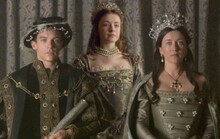
1529- THE DIVORCE.
Proceedings of the Legatine Court, containing depositions of witnesses, &c.
Begins with the words, ... "decreverunt eidem procuratori Regis copias omnium et singulorum gestorum et exhibitorum illo die et tribus sessionibus proximo præcedentibus dandas fore, præsentibus tunc memoratis domino abbate Westmon., et Thoma Arundell, armigero, et aliis multis in copiosa multitudine congregatis, die vero supradicto Veneris, videlicet 16o die mensis Julii, &c."
Admission, on the petition of John Hughes, of Wm. Falk, notary, John Taverner, and John Clamport, citizens of London, as evidence on the 2nd article. Depose to the existence of certain writings touching this cause. Adjourned till the Monday following. Agreed, on the motion of the same Hughes, touching certain evidences in the possession of Garter, that John abbot of Westminster, Wm. Burbank, archdeacon of Carlisle, and _ Hygons, canon of Sarum, shall report upon the same. Richard Sampson, the King's proctor, to be present at the search.
Monday, 19 July.—Proceedings touching the breve of pope Julius. Process exhibited by Sampson Michell, canon of Chichester, of Geoffrey Wharton, official of the bishop of London, with the subscription of Rob. Johnson, notary, containing the depositions of Agnes duchess of Norfolk, and Mary countess of Essex, as in No. 5778. preceding.
Note at ƒ. 209:—"Desunt hic acta et depositiones testium examinatorum per Fra[n]klyn et Tailor."
Depositions of the abbot of Westminster, Burbank, and others, of searches made in the Exchequer at Westminster, 14 July 1529; present Ric. Warner, sub-chamberlain, and Ric. Longman, doorkeeper. Also, in the Orphan's Chamber at Guildhall, made by Th. Wryethesley, King-at-arms, and Th. Tong, Norroy. In a great register of the latter the following words were found:—"The year of our Lord God 1502, the 2nd day of April, in the castle of Luddelow, deceased the prince Arthur, first-begotten son of our sovereign lord king Henry the VIIth, the 17th year of his reign; immediately after whose decease Sir Richard Pole, his chamberlain, wrote and sent letters to the King's council to Greenwich, where his Grace and the Queen lay, and certified them of the Prince's departing; which discreetly sent for the King's ghostly father, to whom they showed this heavy and sorrowful tidings, and desired him, in his best manner, to show it to the King's highness; which, in the morning, the Tuesday next following, somewhat before the time accustomed, knocked at the King's chamber door. And when the King understood that it was his confessor, he commanded to let him in; which confessor, after due salutation, began to say, `Si bona de manu Dei suscipimus, mala autem quare non sustineamus ?'—and so showed his Grace that his dearest son was departed to God."
In another ancient book of calendars (calendarum)—"This day was born the lord Herre, 1481" (sic), on 28 June; and in another—"Nativitas R. H. VIII., 28o die Junii 1491, Greenwich." Marriage of prince Arthur and Katharine at St. Paul's, 24 Nov. 1501.
In the Council Chamber they found a printed book of the names of the bailiffs, mayors, and sheriffs of the city of London, with this passage:—"This year (17 Hen. VII.) was sent unto England the king of Spain's third daughter, named Katharine, to be married to the prince Arthur; and she landed at Plymouth the 8th day of October, and [was] received into London in the most royal wise the 12th day of November, then Friday, and the Sunday following married at St. Paul's Church; and an halpace made of timber from the west door to the quire door, of 12 foot broad and 4 foot of height, and in the midst of the same married; and the feast holden in the Bishop's palace. And from London Bridge to Paul's in divers streets were made royal and costly pageants. And at the west door of Paul's was made a costly pageant, running wine, red, white, and claret, all the day of the marriage. And at the same triumph the King made 57 knights. And the Tuesday after, all the court removed to Westminster by water, and the marriage, with all the crafts with them, in barge[s], with trumpets, shawms, and tabrets, in their best manner. And there the King held royal jousts, tourneys, and banquets six days after, and then removed to Richmond, &c."
Examination of Fox, bishop of Winchester, by Ric. Wolman, archdeacon of Sudbury, on the 5th and 6th of April 1527, in the Bishop's chamber in the castle of Wolvesaye, in the city of Winchester, in the presence of Andrew Smith, notary. Says he is 79 years old; and it is now 41 years since he knew Henry VII. Knew prince Arthur, who was born in the priory of St. Swithin's, Winchester, and baptised in the monastery;—he being secretary to Henry VII., and present. Says he baptised Henry VIII. in the Church of the Observants at Greenwich. Remembers the entry of queen Katharine into London, and met her in St. George's Fields, and conducted her into London. Does not remember anything of the matrimonial contract between her and Arthur. Was present at the solemnization at St. Paul's. Thinks the contract was passed some time before. Thinks the Prince was of sufficient age for marriage, but cannot remember how old he was. Says they cohabited in the palace of the bishop of London, near St. Paul's, for about 14 days, and after that resided in Wales, to the Prince's death. After his death, negotiations took place for a marriage between Katharine and Henry, at which he was present, and had many conferences with Dr. De Peohebla, Spanish ambassador. Is not certain whether Henry VII. proposed the marriage. Thinks it was done by De Peohebla,—how long after the death of Arthur, cannot say. Does not recollect whether any writings took place. Says that frequent deliberations took place between the King's councillors, of whom he was one, in reference to the impediment. Thinks there was a contract between the two. Does not know the express age of the Prince. Is certain that a bull was obtained from the Pope, which was then thought sufficient for contracting the marriage and removing the impediment. Believes that various bulls were obtained, two of which remain in England, and one or two in Spain, all of the same tenor. On a copy of the bull being read to him, stating that Henry desired the marriage, and yet at the time of the bull he was a minor, believes the suggestion was a true one, so far as the peace of the two kingdoms was concerned; but whether the King desired the marriage at the time of the bull, says he does not know what the King's mind was. Says the bull was obtained by the ambassadors of the two kingdoms, and chiefly by Adrian cardinal St. Chrysogon. Does not suppose that the consent of Henry was asked about the bull, as he was then a minor. He cannot speak of his own knowledge, but he thinks that Henry desired the marriage, and that he loved Katharine for her excellent qualities. Does not remember that Henry, when he arrived at the age of puberty, expressly consented to or dissented from the marriage between himself and Katharine. He thinks, however, that a protestation was made, "quod dictus invictissimus princeps, non obstantibus prioribus sponsalibus inter ipsum et dictam clarissimam Catherinam factis, nec quibuscunque verbis aut douariis in ea parte intervenientibus, nec quod insimul in eadem domo et familia illustrissimi Henrici VIImi, patris ipsius invictissimi Henrici octavi, in minore ejus ætate cohabitassent, tunc ad annos pubertatis perveniens, non intendebat obligari ad observationem hujusmodi sponsalium in minore ejus ætate contractorum, quam quod posset pro suo arbitrio accipere quamcunque vellet aliam sibi in uxorem." Thinks this protest is still to be found with Master Ryden, clerk of the Council. Does not remember that Henry VII. ever interdicted the Prince, after this protest, from showing signs of love to Katharine. Thinks the protest was made by command of Henry VII. Believes it was made before Ryden, the notary; and that either he, or Thomas Ruthall, or West, now bishop of Ely, drew it up, in the presence of the earl of Surrey, Dr. Peohebla, and princess Katharine, at Durham Place, in the suburbs of London. Does not remember that any public instrument was made of the protest. If so, it was delivered to Henry VII. Does not think any new dispensation was gained. Says he had many conferences with Henry VII. after the death f prince Arthur, and that his intention always was that Henry should marry Katharine; but the solemnization was put off on account of the disputes between the King and the king of Spain touching the re-demanding of the dote. Says he did not know that Henry VII. ever wished to marry the mother of the present Emperor (Joan), but he intended to marry Margaret duchess of Savoy. Asked if Henry VII. communicated to him any designs of other marriages for the Prince, after his protest, and whether he wished him to marry the sister of the king of Spain: says he never heard of such a wish. Refers him to the laws how far the bull must be deemed sufficient.
On the Bishop's declining to subscribe his deposition on account of his blindness, and none of his counsellors being allowed to be present, the said Ric. Wolman said he was instructed to sign it, if necessary, in the Bishop's name. Whereupon, out of deference to the King's command, he signed it.
Attestation by Augustine Spinola, cardinal and papal chamberlain, 27 Jan. 1529, 6 Clem. VII., of the breve granted by Julius II., 6 July 1504.
Copy of the breve of Julius II. to Henry VII., 22 Feb. 1505.
Oath of Wriothesley.
Sittings on Wednesday, 21 July.—Protest of Henry prince of Wales. (fn. 4)
Sittings on Friday, 23 July.—Prorogation by Campeggio of the court to the 1st of October.
"Liber continens depositiones testium, et processum habitum coram Legatis.—Ricardus Watkyns, prothonotarius regius."
Lat., pp. 134, imperfect at the commencement. Endd.
Record of the proceedings at twelve sessions of the Papal Commissioners in the matter of the divorce of Catharine of Aragon.
1531 – Death of Louis de Brézé, seigneur d'Anet, husband of Diane de Poitiers
1543 – Mary of Guise and her daughter, Mary, Queen of Scots, escaped from Linlithgow Palace to Stirling Castle.

1596 – Death of Henry Carey, 1st Baron Hunsdon
source:http://www.british-history.ac.uk/,http://www.onthisdayintudorhistory.com/
-
Par MissGuillotine le 21 Juillet 2014 à 21:35
22 July 1210 – Birth of Joan of England, Queen of Scotland

1461 – Death of Charles VII of France
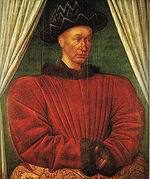
1478 –Birth of Philip I of Castile

1484 – Battle of Lochmaben Fair – A 500-man raiding party led by Alexander Stewart, Duke of Albany and James Douglas, 9th Earl of Douglas are defeated by Scots forces loyal to Albany's brother James III of Scotland; Douglas is captured.
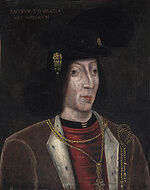
1499 – Battle of Dornach – The Swiss decisively defeat the Imperial army of Emperor Maximilian I.
1510 – Birth of Alessandro de' Medici, Duke of Florence
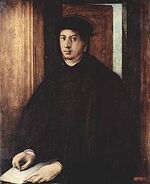
1525-Death of Sir Richard Wingfield,an influential courtier and diplomat in the early years of the Tudor dynasty of England.
1535 – Birth of Catherine Stenbock, Swedish wife of Gustav I of Sweden

1536 - Death of Henry Fitzroy,1st Duke of Richmond and Somerset,son of King Henry VIII of England and his mistress Elizabeth Blount, and the only illegitimate offspring whom Henry acknowledged. He was the younger half-brother of Mary I, Elizabeth I and Edward VI. Through his mother he was the elder brother of Elizabeth Tailboys, 4th Baroness Tailboys of Kyme, George Tailboys, 2nd Baron Tailboys of Kyme and Robert Tailboys, 3rd Baron Tailboys of Kyme.
According to the chronicler Charles Wriothesley, Richmond became sickly some time before he died, although Richmond's biographer Beverley A. Murphy cites his documented public appearances and activities in April and May of that year, without exciting comment on his health, as evidence to the contrary.He was reported ill with "consumption" (usually identified as tuberculosis, but possibly another serious lung complaint) in early July, and died at St. James's Palace on 22 July 1536.
Norfolk gave orders that the body be wrapped in lead and taken in a closed cart for secret interment, but his servants put the body in a straw-filled wagon. The only mourners were two attendants who followed at a distance. The Duke's ornate tomb is in Framlingham Church, Suffolk. One of the houses at the local high school is named after him.
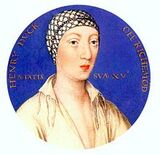
1541-Saints' Days.
Decree by the King for the observance of Saints' days as follows:—The feast of St. Luke and St. Mark, Evangelists, occurring within the terms at Westminster, and the feast of St. Mary Magdalene falling within the time of harvest were, amongst other holydays, abrogated; but as these Saints are many times mentioned in Scripture, their feasts are henceforth to be kept. St. Mark's Day in divers parts of the realm used to be kept as a fasting day, as no other Saint's day is, but henceforth it is not to be so kept. By reason of the variable falling of Easter the feast of the Invention of the Cross, commonly called St. Elyn's Day, sometimes falls within Easter term, and is therefore not kept; it is henceforth abrogated whether it fall within or without the term. Likewise the Exaltation of the Cross in harvest or out of harvest shall not be kept. St. Laurence Day falling within harvest was abrogated, but as no mention was made of the fast upon the eve of St. Laurence, many people feel bound to keep it upon the eve; it is henceforth not to be kept. Childish superstitions are still used in divers places upon St. Nicholas, St. Catharine, St. Clement, Holy Innocents, and the like, children being apparelled to counterfeit priests, bishops and women, and so led, with songs and dances, from house to house, blessing the people and gathering money, and boys singing mass and preaching in the pulpit, rather to the derision than to any true glory of God. Henceforth such superstitions are forbidden.

1549 - Robert Kett and his fellow protests attack and occupy Norwich
source:http://www.british-history.ac.uk/,wikipedia
-
Par MissGuillotine le 20 Juillet 2014 à 21:37
21 July 1403 – Battle of Shrewsbury: King Henry IV of England defeats rebels to the north of the county town of Shropshire, England.

1403 – Death of Henry Percy, English soldier
Sir Henry Percy was known as one of the most valiant knights of his day, and was a significant captain during the Anglo-Scottish wars. He later led successive rebellions against Henry IV of England, and was slain at the Battle of Shrewsbury in 1403 at the height of his career.
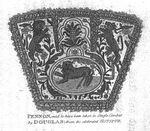
1528-Henry VIII to Anne Boleyn
The approach of the time which has been delayed so long delights me so much that it seems almost already come. Nevertheless, the entire accomplishment cannot be till the two persons meet; which meeting is more desired on my part than anything in the world, for what joy can be so great as to have the company of her who is my most dear friend, knowing likewise that she does the same. Judge then what will that personage do whose absence has given me the greatest pain in my heart, which neither tongue nor writing can express, and nothing but that can remedy. Tell your father on my part that I beg him to abridge by two days the time appointed that he may be in court before the old term, or at least upon the day prefixed; otherwise I shall think he will not do the lover's turn as he said he would, nor answer my expectation. No more, for want of time. I hope soon to tell you by mouth the rest of the pains I have suffered in your absence. Written by the hand of the secretary, who hopes to be privately with you
Is perplexed with such things as her brother will declare to her. Wrote in his last that he trusted shortly to see her, "which is better known at London than with any that is about me; whereof I not a little marvel, but lack of discreet handling must be the cause thereof." I hope soon "our meeting shall not depend upon other men's lyght handylleness but upon your own. Written with the hand of hys that longeth to be yours."

1528- HERETICS.
i. Confession of Edmund Tyball, of Bumstede, husbandman, before Mr. Wharton, in St. Mary's chapel in the monastery of Walden, 21 July, "anno Domini supradicto."
About Christmas last heard Sir Richard Fox, parish priest of Bumstede, say in John Darkyn's house that he wished he had my lord Cardinal's authority, and he would pull down these images in the church, for he feared many sinned in idolatry. John Lond was angry with him for these words, said he would bear a fagot to burn him, and after that took his "portyse" in his hand. Sir Richard replied "that there is never a word that God ever made." At this Darkyn was very "wode," and bade him get out of his house. At the same time Fox said, "Ye make a vow or a behest to go in pilgrimage to Our Lady of Ipswich, Walsingham, or to Canterbury, and there by a candle of wax think ye do well." Darkyns replied, "Yea. How say you?" To which Fox gave no answer. After that Fox said openly that God commanded no fasting days except the "Imbren days," and men were not bound to other days, except after their devotion.
Was shriven last Lent by Fox, who, during his confession, asked him how he believed in the Sacrament of the Altar. Answered, that he believed that God was there in form of bread, Redeemer of all the world; and then Fox said, "Nay; it is but a remembrance of Christ's Passion." Never believed nor consented to this teaching, but did not disclose it. Was much in company with and very familiar with Fox.
Abjuration of all heresies by Tyball, and promise to discover all persons whom he knows to be heretics. Signed with a cross.
Wharton absolved Tyball, on his confession, from the sentence of excommunication, and enjoined him, as penance, to carry a fagot before the procession at the church of Steple Bumstede on the following Sunday, and to hear high mass throughout. Present: Dr. Jynner, Mr. Core, rector of Radwinter, Richard, curate of Heydon, John Goldyng and Thomas Turner.
1528-Henry VIII to Queen Margaret
Thanks her for her discreet answers to his letters, urging the erection of her son to his proper estate, to which her natural affection and her great wisdom must lead her; for whoever considers Albany's demeanor in undertaking such a suspect governance, in pretending to be heir apparent, in restoring himself and his blood during the young King's minority, in usurping divers patrimonies of the King to his own succession, and in detaining and misemploying the crown revenues, and the damage which has ensued through him as servant to the French king, may evidently perceive that he either will not dare return as the King is so nearly of age, or, if he do, he will not abide the danger, which will be imputed to him, but will rather compass the Scotch king's destruction, and himself aspire to the throne, with the advice and help of the French king, who hates nothing more than the proximity of blood between the kings of England and Scotland. Knows that he intends this, by intercepted letters and other credible ways. All the King's friends and true subjects must regard this as Henry himself has done in making war, to his no small expence, on Albany's supporters, for the King's preservation. If he had not done so, the King would have been in extreme danger. Offers to defend her, her son and his friends, against all princes and persons, in taking his royal dignity, which must not be deferred for four or five days, nor for one day or hour, but done immediately in spite of all sinister compasses and colorable persuasions. As, therefore, they have so great a friend to maintain their quarrel, she must cause the King immediately, if it is not already done, to come forth and give express commandment to all his nobles and subjects, on pain of their allegiance, to take his part, and whoever will move or persuade him to the contrary, to be accounted a rebel and traitor. Will treat thus every one so persisting. To show by deeds as well as words that he will maintain their quarrel, has sent Norfolk to the Borders as his lieutenant, to advise them, and, if need be, assist them, as Norfolk will show.
As to peace between the realms, never intended that any but she should have the honor and doing thereof, as she has always labored for it, and it is not to be attempted except by a person of her estate. Nevertheless, has not showed himself displeasant to any honorable nobleman who proposed anything concerning peace. Was thus persuaded by Angus, contrary to his former intention, to admit a diet between Norfolk and the Chancellor in case they would abandon Albany and "erect" the King; not that he intended Angus to have any authority in conducting it, but that she should be the author and mediator thereof. Has ordered that if any such diet is held, all shall be done by her. Has arranged that Angus shall remain on the Borders, and not meddle more than she wishes; and he never intended to do anything but with her advice and consent. She can see that she could not wish him to have more regard to her son's weal than he is determined to show. If anything expedient is passed over, it shall never be said that there was any lack in him to do as much or more than a loving uncle and brother should do. Commits the rest to her wisdom, and to those who will prove themselves his nephew's faithful subjects. They may be sure that by so doing they will obtain from him more benefit than they have hitherto, or shall receive by any other way.
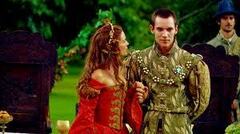
1536-Princess Mary to Henry VIII.
The King gave her licence some time to send a servant to know of his health and prosperity. Has now sent her old servant Randal Dod with these letters as a token, and begs the King, if she is "over hasty in sending so soon," to pardon her, and believe that she would rather be a chamberer, having the fruition of the King's presence, than an Empress away from him. My sister Elizabeth is well, "and such a child toward, as I doubt not but your Highness shall have cause to rejoice of in time coming; as knoweth Almighty God, who send your Grace, with the Queen my good mother, health, with the accomplishment of your desires." Hownsdon, 21 July.
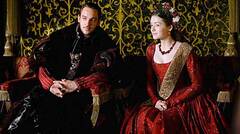
1540-Anne of Cleves to the Duke of Cleves.
Perceives by his letter of the 13th to the king of England, her “most dear and most kind brother,” that he takes the matter lately determined between them somewhat to heart. Informs him that she consented to the examination and determination, “wherein I had more respect (as beseemed me) to truth than to any worldly affection that might move me to the contrary, and did the rather condescend thereunto for that my body remaineth in the integrity which I brought into this realm.” The King has adopted her as his sister, and uses her with more liberality than she or her brother could well wish. Is well satisfied. The King's friendship for him will not be impaired for this matter unless the fault should be in himself. Thinks it necessary to write this, and that she purposes to live here, lest for want of true knowledge he should take the matter otherwise than he ought. Subscribed: Anna Duchess born of Cleves, Gulik, Geldre, and Berge, your loving sister.
Statement of the provision made by Henry VIII. for Anne of Cleves:—
1. She will be considered as the King's sister, and have precedence over all ladies in England, after the Queen and the King's children.2. She shall have an annual income of 8,000 nobles; and 500l. st. have been given to her officers. 3. Two manors, Richmond and Blechingley, having splendid houses and parks of 6 leagues and 2 leagues.
4. She shall have hangings, plate, and furniture, and (5), money for her household till her income is sufficient. 6. “Pretiosissimas [vestes].” 7. Jewels and pearls. 8. A good number of officers, the heads being nobles.

1545 – The first landing of French troops on the coast of the Isle of Wight during the French invasion of the Isle of Wight.
1553 - Arrest of John Dudley, Duke of Northumberland

source:http://www.british-history.ac.uk/,wikipedia
 Suivre le flux RSS des articles de cette rubrique
Suivre le flux RSS des articles de cette rubrique




